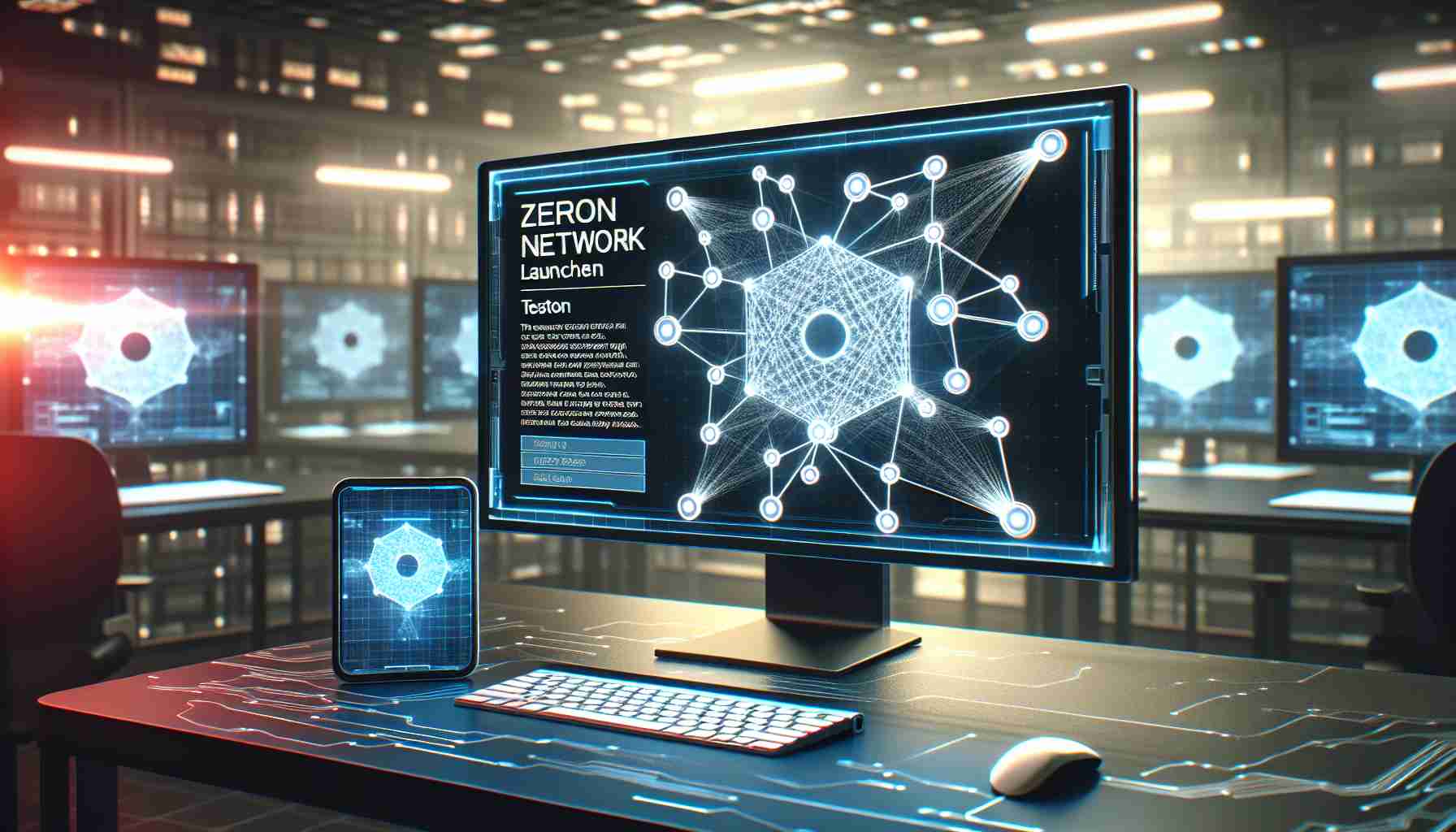Zerion Rolls Out ZERO Network’s Testnet to Revolutionize Crypto Transactions
In a significant development for the cryptocurrency community, Zerion, a renowned crypto wallet service provider, has commenced the testing phase of its ambitious Layer 2 rollup solution called ZERO Network. Leveraging the ZKSync’s ZK Stack toolkit, ZERO Network is joining the likes of Lens Protocol and Cronos zkEVM, enhancing the burgeoning ZKSync suite of blockchain projects.
With the ZERO network’s official launch anticipated later within the year, prominent collaborators such as 1inch, Philand, and Dodo Finance are gearing up to establish their services on the ZERO testnet and subsequently transition to the full-fledged mainnet once available.
Zerion’s Commitment to ZERO Ecosystem Developers
Zerion has stepped up its commitment to the ZERO ecosystem development community by offering substantial incentives, including complimentary API credits and advantageous positioning in the Zerion Wallet interface. Additionally, to circumvent potential misuse and bot interference owing to the network’s decision to eliminate gas fees, Zerion has introduced ‘Onchain DNA,’ an innovative spam mitigation mechanism intended to distinguish authentic users from automated scripts. It has plans to release Onchain DNA code to the public, encouraging community-driven enhancements and adaptation.
Evgeny Yurtaev, Zerion’s co-founder and CEO, has expressed his enthusiasm about creating ZERO Network using ZK Stack, which promises scalability, EVM compatibility, and an improved wallet interface through the concept of account abstraction.
ZERO Network is poised to offer a largely feeless environment for users to deal with digital assets, providing the possibility to use any token for managing network costs. This has been made possible through the tailor-made paymaster contract that Zerion has developed, aiming to handle transaction expenses on behalf of wallet users.
While initially subsidizing fee-free transactions will incur costs to Zerion, they forecast that as their transaction fee structure optimizes, these expenses will diminish over time. Meanwhile, decentralized applications on the ZERO Network will also have the option to sponsor transaction fees for end-users.
This initiative by Zerion stands to create a more accessible and streamlined blockchain environment, looking to attract both experienced and newcomer participants in the vibrant cryptocurrency ecosystem.
Important Questions and Answers:
– What is Zerion?
Zerion is a crypto wallet service provider that offers user-friendly interfaces for tracking and managing decentralized finance (DeFi) portfolios across multiple chains.
– What makes ZERO Network innovative?
The ZERO Network is innovative primarily because it leverages zero-knowledge proofs (ZKPs) and account abstraction to offer scalability and enhance the user experience. It aims to create a feeless or largely fee-reduced environment for transacting with digital assets, which could significantly lower the barrier to entry for users.
– What are zero-knowledge proofs (ZKPs)?
Zero-knowledge proofs are a cryptographic method by which one party can prove to another party that they know a value (such as a secret key), without conveying any information apart from the fact that they know that value.
– What are the key challenges associated with ZERO Network?
Key challenges could include ensuring the security and robustness of the network, achieving widespread adoption among users and developers, and managing the transition to a sustainable fee structure that maintains the envisioned low-cost framework.
Advantages and Disadvantages:
Advantages:
– Feeless or reduced-fee transactions could drastically cut costs for users and make DeFi more accessible.
– The use of ZKPs can increase transaction throughput and scalability while preserving privacy.
– Account abstraction allows for a more seamless and intuitive user experience by simplifying interactions with the network.
Disadvantages:
– The novel technology could have undiscovered vulnerabilities that may be exploited if not thoroughly tested and audited.
– The promise of feeless transactions might not be sustainable in the long term without adequate economic mechanisms and incentives in place.
– There may be concerns over centralization if the network’s fee subsidies are controlled by a single entity, like Zerion.
Controversies:
– Discussions may arise about the trade-offs between decentralization, security, and usability that ZERO Network makes.
– There may also be concerns or controversies related to the governance model of the project and how decisions are made within the ecosystem.
Related Links:
– Visit Zerion
– Learn more about ZKSync and the ZERO Network’s technical foundation at ZKSync
In sum, Zerion’s move to unveil the ZERO Network testnet is a bold step towards enhancing DeFi accessibility while tackling some of the most pressing issues like high transaction fees and scalability. The success of this initiative will likely depend on the robustness of the technology, the effectiveness of its incentive models, and the project’s ability to foster a supportive and engaged community of users and developers.



